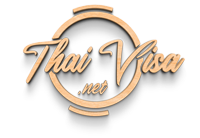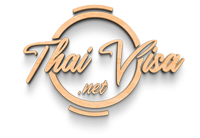Business Visa in Thailand. Considering a business venture in Thailand? The Southeast Asian nation offers exciting opportunities for entrepreneurs and foreign investors. To operate legally and navigate business opportunities, you’ll likely need a Thailand Business Visa, also known as a Non-Immigrant B Visa. This article explores the different types of Business Visas, their eligibility criteria, and the application process.
Types of Thailand Business Visas
The Thai immigration system offers two primary Business Visa options:
- Single Entry Business Visa: This visa is ideal for short-term business trips like attending meetings, conferences, or conducting market research. It allows a single entry into Thailand and is valid for 90 days from the issuance date.
- Multiple Entry Business Visa: This visa caters to businesspeople requiring frequent visits to Thailand. It allows multiple entries throughout its validity period, typically one year, with a maximum stay of 90 days per visit. You can apply for a re-entry permit if you need to stay longer or leave and re-enter Thailand during the visa’s validity.
Who Qualifies for a Thailand Business Visa?
To qualify for a Business Visa, you must meet specific criteria:
- Business Purpose: Your visit must have a legitimate business purpose, such as attending meetings, negotiating contracts, or exploring business partnerships.
- Valid Passport: Your passport must have at least six months of remaining validity from your planned arrival date in Thailand.
- Financial Stability: You’ll need to provide proof of sufficient funds to support your stay in Thailand. The required amount may vary depending on your nationality and whether you’re traveling alone or with dependents.
- Invitation Letter (Optional): An invitation letter from a Thai company you’re visiting can strengthen your application, though it’s not always mandatory.
Applying for a Thailand Business Visa
The application process typically involves these steps:
- Gather Required Documents: Prepare documents like your completed visa application form, passport photos, proof of financial stability, and a return flight ticket (if applicable). An invitation letter, if available, can be helpful.
- Submit Application: Submit your application and supporting documents to the Royal Thai Embassy or Consulate in your home country. Fees associated with the visa application will also need to be paid at this stage.
- Interview (Possible): In some cases, the embassy or consulate may request an interview to discuss your business trip and verify your documents.
- Visa Issuance: If your application is successful, you’ll receive your Thailand Business Visa within the processing timeframe.
Important Considerations
- Processing Times: Visa processing times can vary depending on your nationality and the workload of the embassy or consulate.
- Work Permit: A Business Visa doesn’t authorize you to work in Thailand. If employment is your purpose, you’ll need a work permit alongside the visa.
- Visa Extensions: Single Entry Business Visas cannot be extended within Thailand. Multiple Entry Business Visas might allow extensions under specific circumstances. It’s advisable to consult with Thai immigration authorities for details.
Exploring Additional Options
For individuals planning significant investments in Thailand or seeking long-term residency for business purposes, the Thailand SMART Visa program offers an alternative path. The SMART Visa caters to highly skilled professionals and entrepreneurs in specific industries and provides extended stays and work permit exemptions under certain conditions.
Conclusion
A Thailand Business Visa is your essential entry point for conducting business activities in the country. By understanding the visa types, eligibility criteria, and the application process, you can ensure a smooth entry and focus on your business endeavors in Thailand. Remember, consulting with a Thai immigration specialist can provide valuable guidance for your specific situation.


